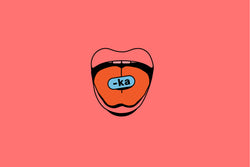In November of last year, the Polish Language Council took a stance on the issue of feminatives, stating that "Polish needs greater, possibly fuller symmetry of male and female personal names in the vocabulary". This has changed absolutely nothing (because did anyone expect it to?). Your colleagues are howling over the joke about the steering wheel, i.e. a female driver, giving voice to stereotypes and their own resentment of mythologized feminists. The belief that feminine forms of job names and titles are weapons in ideological struggles, and not an ordinary part of the constantly evolving language that not everyone wants to or can use, still lingers. And it will linger for a long time. That is why we all need to calm down.
Perhaps we are in for another hundred years of fruitless debate about whether women can simply call themselves whatever they like. To them, and not to a group of people who tremble at the thought that one of the functions of language (the constitutive function) is to influence extralinguistic reality, including social reality. Meanwhile, language – despite being a “language” and not a “language” – is not afraid of change. It is not possessive and does not worry about its position. It shapes and at the same time paints the world around us, and this is realistic painting, although not always to everyone’s taste. After all, language remembers historical periods in which attempts were made to use it for their own purposes. But today? Let’s agree that even if some lover of feminist linguistics paraphrased the master Miłosz: “They looked into my means, they looked into my workshop, they did not look into my ass, and I had patriarchy there”, no man would be harmed.
So what's all the fuss about? For example, about the identical sound of female names and other words: "Pilotka?! Where is it! I can wear a pilotka on my head and not because a woman happens to step on a man's head." About difficult consonant clusters: "Surgeon? To mutilate our native language like that... And why does she even get involved in the discussion!" About the fact that most people who express similar issues remain unmoved by the fact that pilotka is also used to fly through channels, and that words that have been in the language for a long time are much more problematic in terms of correctness than new, foreign-sounding words.
But let's not say that I'm writing like a broken, God forbid, writer – the first text I found on the Internet after typing the word "feminatives" into a search engine provided me with further arguments against female personal names. According to the author of the text, who is also a proofreader, feminatives are "fanciful and eye-scraping" inventions, and "Word's automatic dictionary protests with a furious red snake against such a linguistic mutation". And in general, on the Internet, everyone laughs at them. They laugh. Everyone. Feminatives are bad because they sound funny – I really like this justification. It was used in a country where there are places such as Wielądki Rosochate, Wiłkopedzie and Dyszobaba. In a country where a certain species of spider is called Zyzuś Tłuścioch.
Each of the examples mentioned has appeared in the discussion countless times, so I can only repeat after the Polish Language Council and many distinguished linguists individually: "most arguments against creating female names are unfounded". However, the same council announced that there is no obligation to use feminatives, so calm down, and don't you worry. It is understandable that we do not like to insert expressions that do not sound Polish into our statements. There is no obligation - it is the law. If we started to respect it, both sides of the dispute could breathe a sigh of relief and, as some say, deal with more serious matters.
Feminist linguistics draws attention to many linguistic phenomena that indicate the asymmetry of language, or more precisely, male linguistic dominance. However, starting to consider them will make no sense if, first of all, we do not respect the basic expectations of women who would like the names of their professions to have their female equivalents. We are talking about prestigious professions related to performing a public function or scientific achievements, to which women have had no access for centuries... Except that they have for a century. Despite this, dear reader, you can be a hairdresser, a saleswoman, or even a teacher. But some people will never call you a professor, a politician, or, ugh, a scientist. Because, as we already know, it is ridiculous. At best, you will become a professor, a politician, or a scientist, which is actually a correct and, what is more, fully acceptable term. But I do not understand at all why you would accept it. For those who are currently recalling the figures of Adam and Eve, who was created from his rib, I have an equally credible piece of evidence: in the beginning was the Word, and as far as I know, it has no gender.
Personally, I have great hope not only in the function of language, but also in its magical function. I believe that what we say affects the world. These include prayers ("Dear God, let him look in the dictionary..."), curses (when you say bad things about a feminist), wishes ("Long live equal rights!"). I also believe that "language speaks through people, not people using language," as my colleague often says. So all it takes is good intentions and a bit of kindness from part of society, and language - despite its mockers - will find its way into reality in the new 20s, where the number of female scientists, discoverers and presidents is constantly growing.
Trust me, I'm a copywriter.
Created at: 13/08/2022
Updated at: 13/08/2022







































































































































